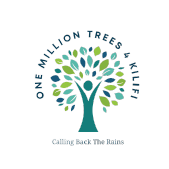In the heart of Kilifi County, Kenya, where the impacts of climate change reverberate through the community, a transformative initiative emerged — the Kilifi Intergenerational Climate Change Dialogue (KICCD) 2023. Born out of a desire to bridge the gap between high-level climate discussions and grassroots communities, this groundbreaking event showcased the power of collaboration, community engagement, and the relentless pursuit of sustainable solutions.

The story began with a vision to localize climate action. Recognizing the urgency of the climate crisis, Onemilliontrees4kilifi conceived the idea of KICCD. Understanding the importance of collective effort, the local organization joined hands with fellow thirty community-based organizations at Maono, forging a united front against climate challenges. Gaining insights from the African Climate Summit in Nairobi, the organizers honed their strategy, drawing inspiration from global initiatives while keeping a keen eye on the unique challenges faced by Kilifi. With shared knowledge, a theme emerged: “Bridging Generations for Climate Action from Local Insights to Global Impact.”

Pooling resources, we engaged over 30 Community Organizations situated at Maono Space, a meeting space for the community where different groups meet to strategize and implement their ideas. Together, they formulated a comprehensive concept for the dialogue, covering crucial topics like carbon markets, waste management, natural resources, and energy. Committees were formed, each playing to its strengths. Advocacy groups reached out to local government officials, emphasizing the historic significance of KICCD. Those working with youth and women mobilized communities from the deep corners of Kilifi County like Garashi, Ganze, Rabai, and so on, bringing together a diverse group of over 300 participants, spanning all ages.

The lead-up to KICCD was a whirlwind of activity. Digital-savvy organizations crafted online registration links and documented environmental degradation caused by over-mining and ocean pollution. Areas like Adu where deforestation is top-notch were documented, and the pollution at the sea level was not left behind. Meanwhile, those skilled in inventions and crafting adorned the event with decorations, banners, and tents, creating an immersive atmosphere. In a remarkable show of unity, committees coordinated seamlessly, with everyone contributing their unique strengths. The event, organized in a mere two and a half weeks, became a testament to what a community can achieve when driven by a common purpose.

On the day of the dialogue, the community poured in, bringing with them a wealth of knowledge, experience, and a shared commitment to combat climate change. Elders reminisced about traditional environmental practices, emphasizing the need to learn from the past. Women from Garashi discovered the impact of carbon markets on their lives, unveiling a previously unknown connection to global initiatives.

KICCD exceeded all expectations. The community’s enthusiastic response, coupled with the insightful discussions led by local leaders and environmental experts, left an indelible mark on Kilifi. Dr. Tunje Pole addressed waste management, Md Rael Nyanchama delved into natural resources, and Julie Wahome shed light on energy. Madam Cate from Pwam emphasized the importance of waste management.

As the dialogue concluded, the resounding sentiment was clear — Kilifi is ready for more. A call for additional dialogues echoed through the community, with the collective voice demanding extended timelines and more opportunities for impactful discussions. Kilifi Intergenerational Climate Change Dialogue proved that from collaboration to execution, every step forward is a step toward a sustainable and resilient future. The first chapter has been written, but the story of Kilifi’s climate action is far from over.

